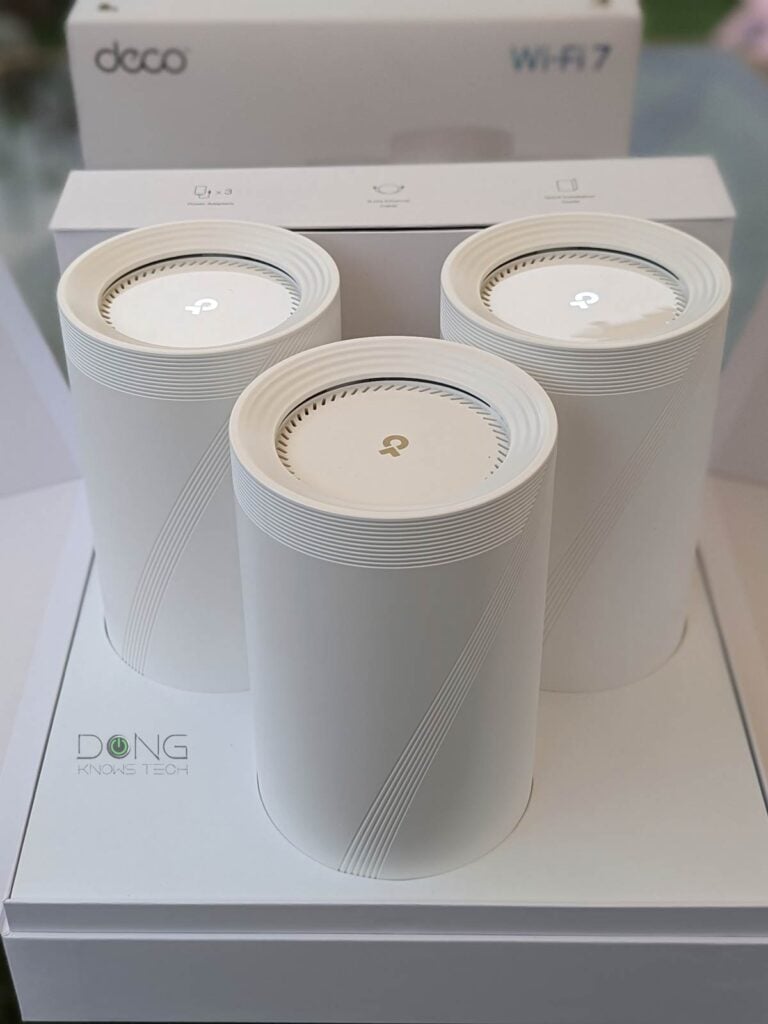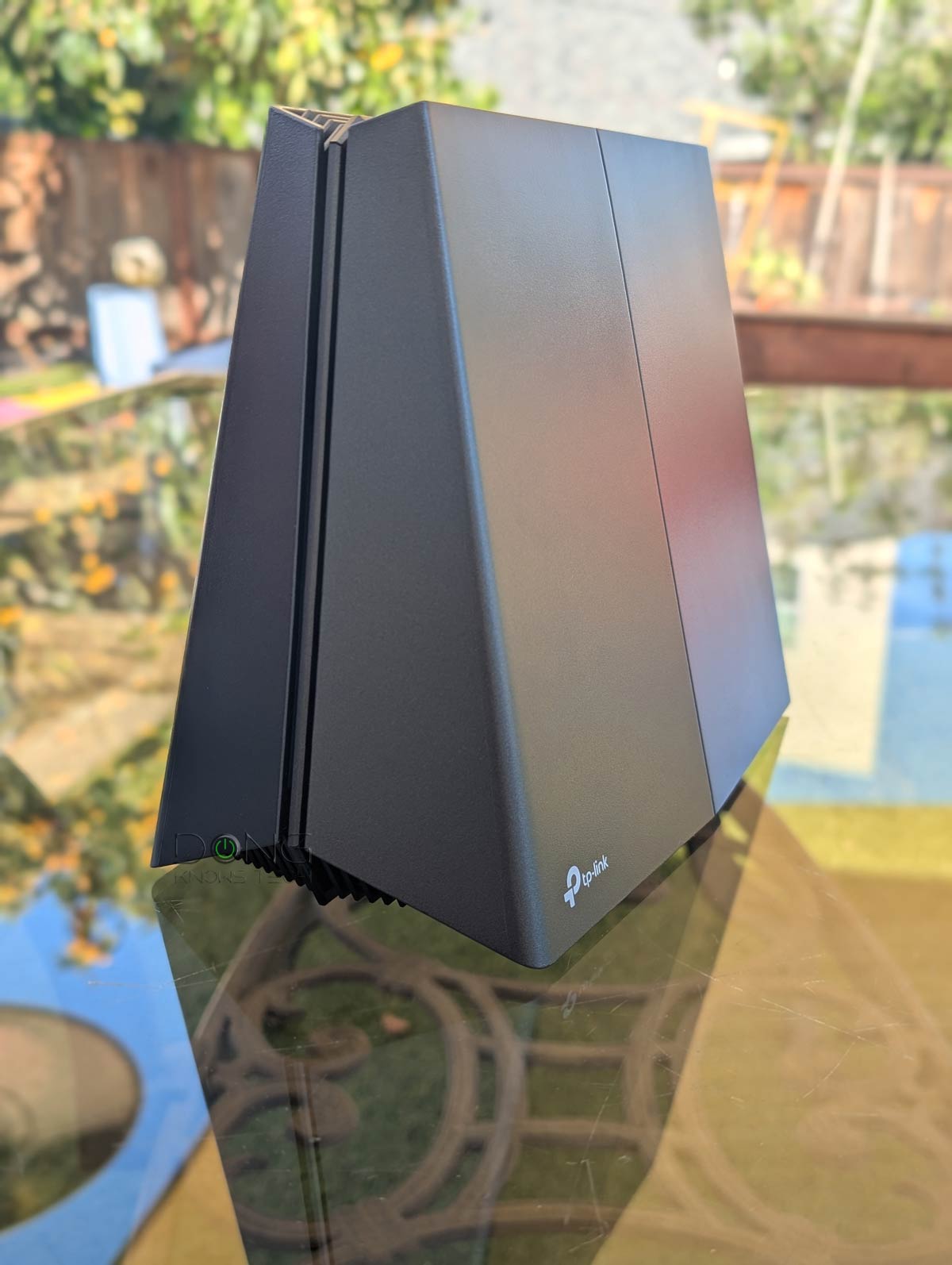If you’re looking to improve your Wi-Fi but on a budget, TP-Link is generally a good brand to consider. That is, if you can wade through the increasing myriad hardware variants that are close to identical to one another.
This post will help.
Below are the top five affordable TP-Link Wi-Fi 7 hardware options—routers and mesh systems—that are affordable yet not cheap. Pick one, and chances are you won’t be disappointed with its cost-over-performance ratio.
Dong’s note: I first published this post on April 16, 2025, and last updated it on July 21, 2025.
Affordable TP-Link Wi-Fi 7 hardware options: Today’s list
These routers and mesh systems are all on sale at lower costs than their original suggested retail price. The list is sorted by pricing, with the lowest on top.
1. Archer GE650 (BE11000)


The Archer GE650 is a lesser version of the gigantic Archer GE800, yet better in more ways than one. It’s TP-Link’s second true gaming router. With tri-band Wi-Fi 7, two 5 Gbps, and three 2.5Gbps Multi-Gig ports, it has everything for an entry-level multi-Gigabit home network. The support for EasyMesh is always a bonus.
Pros
Excellent performance for the specs.
Two 5GBASE-T, three 2.5GBASE-T ports in a compact, fanless, cool-looking design
Robust web user interface with a generous set of free network features, including MLO and gaming-related functions
Competitively priced, EasyMesh-ready
Cons
No 10Gbps ports, mid-tier Wi-Fi 7 specs, no AFC
Online protection and advanced parental controls require subscriptions
2. Archer BE230 (BE3600)


For less than $100 (after discounts), this standard router is by far the most affordable Wi-Fi 7 router to date. Still, with all 2.5Gbps ports and dual-band Wi-Fi 7, it has enough power to deliver Gigabit broadband (even faster) in full. Need extra coverage? Get a few units and link them together via EasyMesh, preferably via wired backhauling.
Pros
Excellent performance for the specs; super affordable
Wi-Fi 7 and Multi-Gig support; robust web user interface with a good set of network features and Wi-Fi settings
Useful (optional) mobile app; EasyMesh-ready; compact and practical design
Cons
No 10Gbps ports or Dual-WAN; modest Wi-Fi 7 specs
Online protection and advanced parental controls require subscriptions
3. Deco BE25 (BE5000)


The Deco BE25 is one of the first dual-band Wi-Fi 7 mesh systems on the market. With decent Wi-Fi specs and two 2.5Gbps ports per unit, it has enough to deliver fast broadband in a large home, again, preferably via wired backhauling. The compact mesh router is available in 3-pack, 2-pack, or single router, making it suitable for any budget-minded situation.
Pros
Reliable Wi-Fi performance; dual 2.5Gbps port with excellent wired backhauling
Super affordable for Wi-Fi 7 hardware; standard set of free networking and features
Compact, eye-catching, fanless design; easy to use
Cons
Short range, minimum Wi-Fi 7 specs with matching performance
Security+ and advanced Parental Controls require subscriptions.
TP-Link login account and mobile app required; no web-based management
4. Archer BE400 (Archer BE6500)


The Archer BE6500, which has a variant that goes with the Archer BE400 model name, is the upgraded version of the Archer 230. It’s a dual-band Wi-Fi 7 router that won’t break your bank and has enough to deliver Gig+ Wi-Fi performance, or entry-level Multi-Gig wired connections.
Pros
Wi-Fi 7 with a 4×4 5GHz band; two 2.5Gbps Multi-Gig support; robust web user interface; a good set of network features and Wi-Fi settings
Useful (optional) mobile app; EasyMesh-ready; compact and practical design
Cons
No 10Gbps ports or Dual-WAN; no 6GHz
Online protection and advanced parental controls require login account and subscriptions
5. Deco BE63 (BE10000)


The Deco BE63 is the less expensive version of the Deco BE85 and proved to be the just-right hardware in terms of cost-over-specs ratio. For $500 for a 3-pack or $300 for a 2-pack, it’s one of the most affordable tri-band Wi-Fi 7 mesh systems you can find that can deliver up to 2.5Gbps of bandwidth.
Pros
Four 2.5Gbps Multi-Gig ports, multi-Gigabit wired backhauling out of the box
Wi-Fi 7 support, backward compatible with existing clients; excellent overall real-world performance;
Cons
No 10Gbps ports or SFP+ support; mid-tier Wi-Fi 7 specs
Vendor-connected mobile app required; HomeShield Pro costs extra
The final thoughts
None of the hardware options mentioned above is the best on the market. (Check out this ultimate collection for that!) However, if you’re on a budget, any of them will get the job done, likely more than your expectations, considering their costs.
